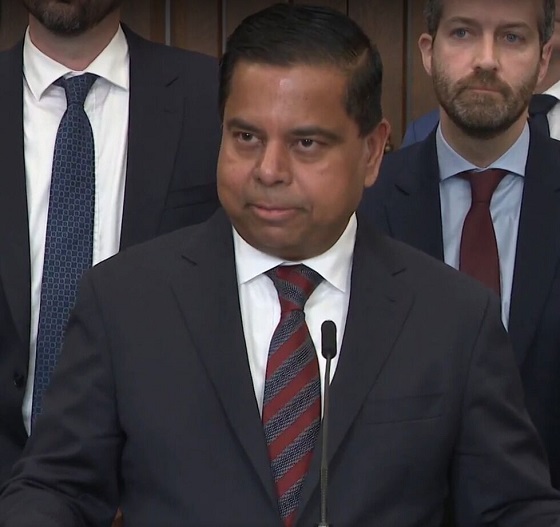Censorship Industrial Complex
UNESCO launches course aimed at ‘training’ social media influencers to ‘report hate speech’

From LifeSiteNews
UNESCO’s bills its new ‘training’ initiative as empowering participants to be more credible and resilient while simply turning independent content creators into talking heads for the establishment.
UNESCO and the Knight Center for Journalism launch training courses, e-books, and surveys on disinformation and hate speech for influencers and content creators, big and small.
Last month, UNESCO published the results of a survey called “Behind the Screens: Insights from Digital Content Creators” that concluded that among 500 content creators in 45 countries that had a minimum of 1,000 followers, 62 percent said they did “not carry out rigorous and systematic fact-checking of information prior to sharing it,” while 73 percent expressed “the wish to be trained to do so.”
And lo and behold! UNESCO and the Knight Center for Journalism in the Americas have launched a re-education course to brainwash independent creators into thinking like unelected globalists and the legacy media, whose credibility are at an all-time low:
The journalism industry is on high alert as news audiences continue to migrate away from legacy media to social media, and many young people place more trust in TikTokers than journalists working at storied news outlets

“Respondents to the survey expressed interest in taking UNESCO’s free online course designed to equip participants with media and information literacy skills and knowledge,” the report states.
To get an idea of the make-up of those 500 content creators that were surveyed in the UNESCO study:
- 68 percent were nano-influencers – those with 1,000 to 10,000 followers
- 25 percent were micro-influencers – those with 10,000 to 100,000 followers
- 4 percent were macro-influencers – those with 100,000 to 1,000,000 followers
- 6 percent were mega-influencers – those with over 1,000,000 followers
Only 12.2 percent of the 500 people surveyed produced content under the category of “current affairs/politics and economy” while the majority covered “fashion/lifestyle” (39.3 percent), “beauty” (34 percent), “travel and food” (30 percent), and “gaming” (29 percent).
Equip yourself to combat online misinformation, disinformation, hate speech, and harmful AI content. Collaborate with fellow journalists and content creators to promote transparency and accountability on digital platforms, empowering your audience with the media and information literacy skills they need to navigate today’s information landscape.
In addition to the survey and the online course called “Digital Content Creators and Journalists: How to Be a Trusted Voice Online,” UNESCO and the Knight Center also published an e-book in October called “Content Creators and Journalists: Redefining News and Credibility in the Digital Age.”
This pyramid of propaganda is billed as empowering influencers to be more credible and resilient, but these efforts are also aimed at turning independent content creators into talking heads for the establishment.
Despite their expanding outreach, many digital content creators who work independently face significant challenges including the lack of institutional support, guidance, and recognition. — UNESCO, Behind the Screens: Insights from Digital Content Creators, November 2024
How can an independent content creator remain independent if he or she needs institutional support, guidance, and recognition?
This is an attempt by the United Nations to take independence away from the equation, so that its messaging becomes indistinguishable from mainstream, establishment narratives.
And between the survey and the e-book, there is not one, single, solitary example of disinformation or hate speech – save perhaps the claim that denying official climate change narratives is considered disinformation, but that’s highly debatable.
Threats to collective climate action are often perpetuated not only by individual creators but by industries, like fossil fuels, that actively shape public discourse to their advantage.
Speaking of climate change, the e-book contains a lengthy chapter called “Content Creators and Climate Change” that is entirely dedicated to pushing climate activism while claiming climate change disinformation is often perpetuated by coordinated campaigns from fossil fuel industries.
The UNESCO documents place heavy emphasis on disclosing who’s funding content creators while ignoring its partner, the Chinese Communist Party’s (CCP), and its alleged influence over UNESCO:
The Chinese Communist Party uses UNESCO to “rewrite history” and to “legitimize the party’s rule over regions with large ethnic minorities.”
When held to a mirror, UNESCO comes off as little more than hypocritical with massive conflicts of interests of its own:
One of the biggest ethical questions is knowing from where content creators derive their income.
At the same time, UNESCO points readers towards organizations like factcheck.org, which itself is funded by the likes of the U.S. State Department and the Robert Woods Johnson Foundation, the latter of which holds approximately $2 billion of stock in COVID vaccine manufacturer J&J, according to U.S. Rep. Thomas Massie.
In January 2021, UNESCO, the WHO, UNDP, EU, and the Knight Center for Journalism in the Americas ran a similar type of propaganda campaign for so-called COVID vaccine disinformation training for journalists as they are now doing for so-called climate change disinformation for content creators.
Another goal of UNESCO and the Knight Center is to create an environment where content creators snitch on one another under the guise of “hate speech”:
Among those targeted by hate speech, most chose to ignore it (31.5%). Only one-fifth (20.4%) reported it to social media platforms. This indicates an area where UNESCO and its partners could provide valuable training for digital content creators on how to effectively address and report hate speech.
In other words, the U.N. is partnering with journalists to teach influencers how to become victims that need protection.
Hey! Content creators. Were you aware that any criticism against the propaganda that we’ve planted within you means that you were a victim of hate speech? No? Well, climb on board and let’s “effectively address and report hate speech!”
Reprinted with permission from The Sociable.
Business
Telegram founder Pavel Durov exposes crackdown on digital privacy in Tucker Carlson interview

From LifeSiteNews
By Robert Jones
Durov, who was detained in France in 2024, believes governments are seeking to dismantle personal freedoms.
Tucker Carlson has interviewed Telegram founder Pavel Durov, who remains under judicial restrictions in France nearly a year after a surprise arrest left him in solitary confinement for four days — without contact with his family, legal clarity, or access to his phone.
Durov, a Russian-born tech executive now based in Dubai, had arrived in Paris for a short tourist visit. Upon landing, he was arrested and accused of complicity in crimes committed by Telegram users — despite no evidence of personal wrongdoing and no prior contact from French authorities on the matter.
In the interview, Durov said Telegram has always complied with valid legal requests for IP addresses and other data, but that France never submitted any such requests — unlike other EU states.
Telegram has surpassed a billion users and over $500 million in profit without selling user data, and has notably refused to create government “backdoors” to its encryption. That refusal, Durov believes, may have triggered the incident.
READ: Arrest of Telegram founder Pavel Durov signals an increasing threat to digital freedom
French prosecutors issued public statements, an unusual move, at the time of his arrest, fueling speculation that the move was meant to send a message.
At present, Durov remains under “judicial supervision,” which limits his movement and business operations.
Carlson noted the irony of Durov’s situating by calling to mind that he was not arrested by Russian President Vladimir Putin but rather a Western democracy.
Former President of Russia Dmitry Medvedev has said that Durov should have stayed in Russia, and that he was mistaken in thinking that he would not have to cooperate with foreign security services.
Durov told Carlson that mandates for encryption “backdoors” endanger all users, not just suspects. Once created, such tools inevitably become accessible to hackers, foreign agents, and hostile regimes.
“In the US,” he commented, “you have a process that allows the government to actually force any engineer in any tech company to implement a backdoor and not tell anyone about it.”
READ: Does anyone believe Emmanuel Macron’s claim that Pavel Durov’s arrest was not political?
Durov also pointed to a recent French bill — which was ultimately defeated in the National Assembly — that would have required platforms to break encryptions on demand. A similar EU proposal is now under discussion, he noted.
Despite the persecution, Durov remains committed to Telegram’s model. “We monetize in ways that are consistent with our values,” he told Carlson. “We monetized without violating privacy.”
There is no clear timeline for a resolution of Durov’s case, which has raised serious questions about digital privacy, online freedom, and the limits of compliance for tech companies in the 21st century.
Censorship Industrial Complex
Alberta senator wants to revive lapsed Trudeau internet censorship bill

From LifeSiteNews
Senator Kristopher Wells and other senators are ‘interested’ in reviving the controversial Online Harms Act legislation that was abandoned after the election call.
A recent Trudeau-appointed Canadian senator said that he and other “interested senators” want the current Liberal government of Prime Minister Mark Carney to revive a controversial Trudeau-era internet censorship bill that lapsed.
Kristopher Wells, appointed by former Prime Minister Justin Trudeau last year as a senator from Alberta, made the comments about reviving an internet censorship bill recently in the Senate.
“In the last Parliament, the government proposed important changes to the Criminal Code of Canada designed to strengthen penalties for hate crime offences,” he said of Bill C-63 that lapsed earlier this year after the federal election was called.
Bill C-63, or the Online Harms Act, was put forth under the guise of protecting children from exploitation online.
While protecting children is indeed a duty of the state, the bill included several measures that targeted vaguely defined “hate speech” infractions involving race, gender, and religion, among other categories. The proposal was thus blasted by many legal experts.
The Online Harms Act would have in essence censored legal internet content that the government thought “likely to foment detestation or vilification of an individual or group.” It would be up to the Canadian Human Rights Commission to investigate complaints.
Wells said that “Bill C-63 did not come to a vote in the other place and in the dying days of the last Parliament the government signaled it would be prioritizing other aspects of the bill.”
“I believe Canada must get tougher on hate and send a clear and unequivocal message that hate and extremism will never be tolerated in this country no matter who it targets,” he said.
Carney, as reported by LifeSiteNews, vowed to continue in Trudeau’s footsteps, promising even more legislation to crack down on lawful internet content.
Before the April 28 election call, the Liberals were pushing Bill C-63.
Wells asked if the current Carney government remains “committed to tabling legislation that will amend the Criminal Code as proposed in the previous Bill C-63 and will it commit to working with interested senators and community stakeholders to make the changes needed to ensure this important legislation is passed?”
Seasoned Senator Marc Gold replied that he is not in “a position to speculate” on whether a new bill would be brought forward.
Before Bill C-63, a similar law, Bill C-36, lapsed in 2021 due to that year’s general election.
As noted by LifeSiteNews, Wells has in the past advocated for closing Christian schools that refuse to violate their religious principles by accepting so-called Gay-Straight Alliance Clubs and spearheaded so-called “conversion therapy bans.”
Other internet censorship bills that have become law have yet to be fully implemented.
Last month, LifeSiteNews reported that former Minister of Environment Steven Guilbeault, known for his radical climate views, will be the person in charge of implementing Bill C-11, a controversial bill passed in 2023 that aims to censor legal internet content in Canada.
-

 Alberta1 day ago
Alberta1 day agoAlberta’s grand bargain with Canada includes a new pipeline to Prince Rupert
-

 Business1 day ago
Business1 day agoCarney’s European pivot could quietly reshape Canada’s sovereignty
-

 Bruce Dowbiggin13 hours ago
Bruce Dowbiggin13 hours agoWOKE NBA Stars Seems Natural For CDN Advertisers. Why Won’t They Bite?
-

 Crime2 days ago
Crime2 days agoManhunt on for suspect in shooting deaths of Minnesota House speaker, husband
-

 Energy13 hours ago
Energy13 hours agoCould the G7 Summit in Alberta be a historic moment for Canadian energy?
-

 Crime13 hours ago
Crime13 hours agoMinnesota shooter arrested after 48-hour manhunt
-

 conflict6 hours ago
conflict6 hours agoIsrael bombs Iranian state TV while live on air
-

 Aristotle Foundation11 hours ago
Aristotle Foundation11 hours agoThe Canadian Medical Association’s inexplicable stance on pediatric gender medicine



